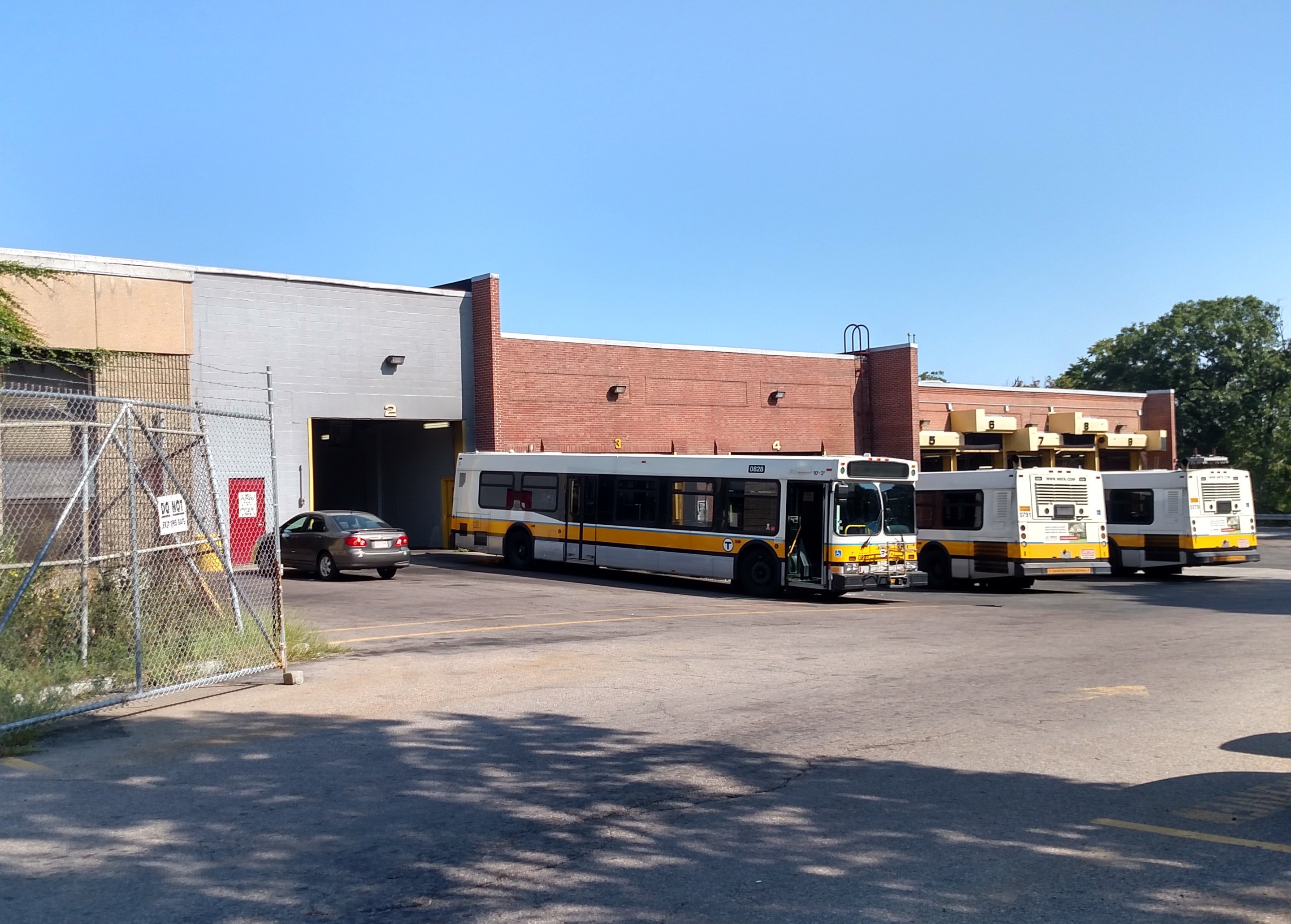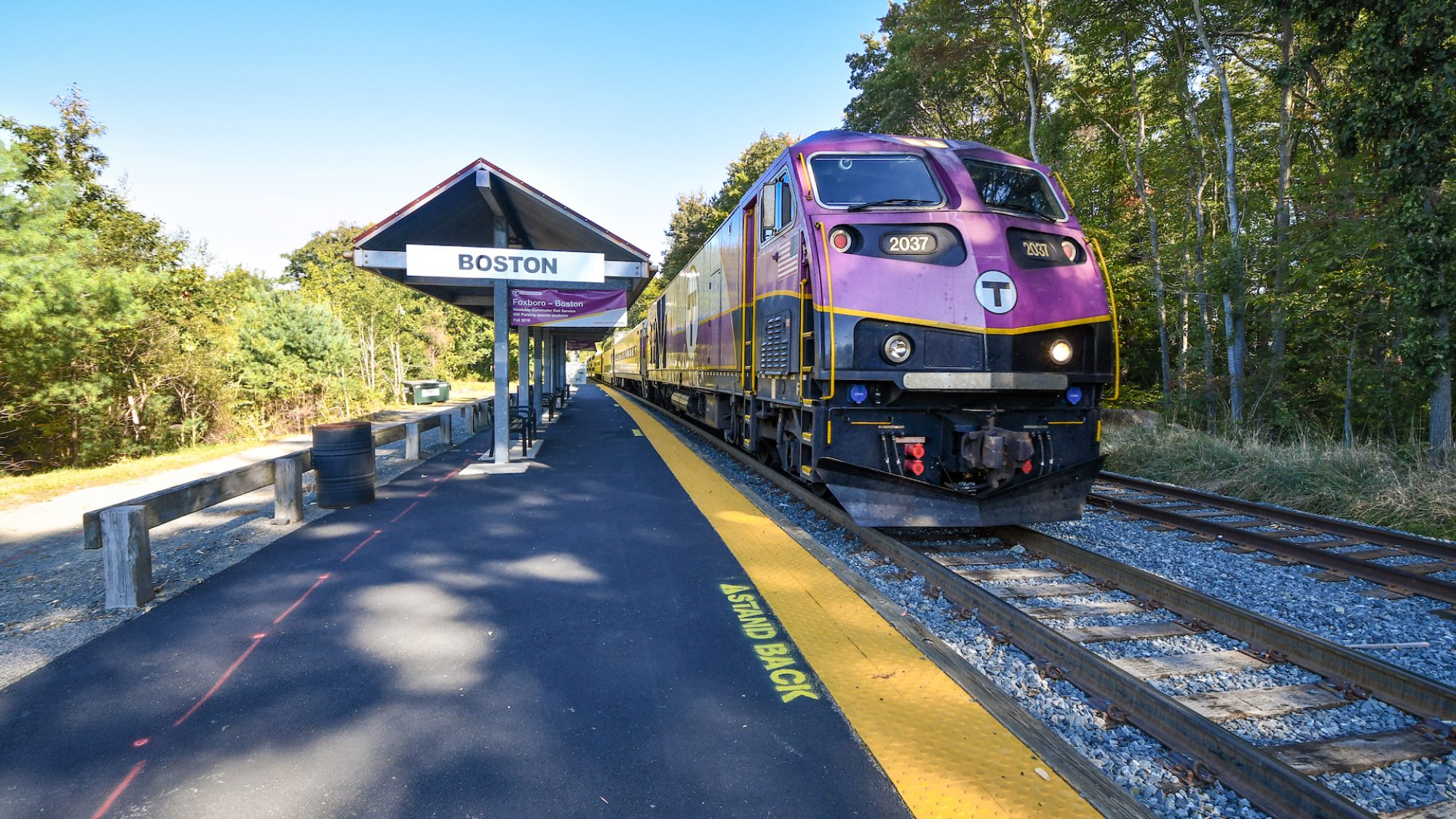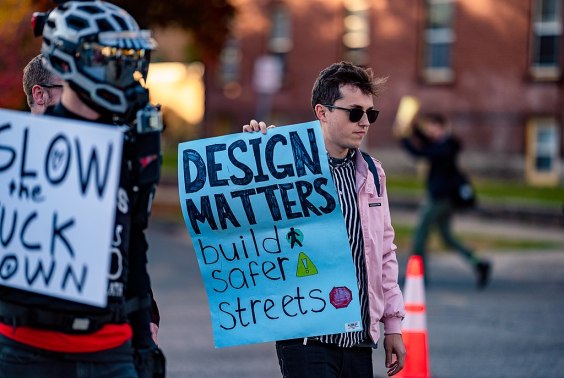While municipalities across the region redesign streets to accommodate better, more reliable bus service, the MBTA has been unable to add more bus trips to its most crowded routes thanks to a lack of space at its aging bus maintenance facilities – and relief is still years away.
Every night, the MBTA parks, cleans, and refuels its fleet of 1,050 buses at nine garages and yards scattered around the metropolitan region. Four of those garages are over 70 years old, and several suffer major problems from years of deferred maintenance.
Advocates have identified MBTA's crumbling bus garages as the major limiting factor that prevents better bus service. In the "64 Hours: Closing the Bus Equity Gap" report published in September, the LivableStreets Alliance wrote that "the MBTA’s service standards are hamstrung by the size of its vehicle fleet... Without addressing the bedrock issue of the MBTA’s bus fleet size and garage facilities, all riders will continue to be underserved."
The MBTA does not disagree with that critique; indeed, the agency itself has been sounding the same alarm for more than a decade.
In a 2010 "Program for Mass Transit" document, the MBTA made plans for the "closure of Fellsway (a 61-bus facility that was built in 1925) and construction of a replacement North Side facility that could ease system capacity constraints at Lynn and Charlestown. Quincy Garage also needs to be rehabilitated, as do Charlestown and Cabot."
Those projects never happened, and nine years later, in its Focus40 plan, MBTA planners reiterated that "six facilities are in need of major upgrades, rehabilitation, or replacement. These facilities, in peak condition, were designed to be able to serve a total of 1,011 buses at any given time. With 1,050 currently active vehicles, maintenance capacity is insufficient both for current and potential future needs."
The poor condition of the T's bus garages doesn't just affect the agency's ability to add more buses to its fleet - it also hampers the agency's efforts to take care of the vehicles it already owns, argues Mike Vartabedian, the Assisting Directing Business Representative representing the Machinists’ Union Local 264.
Vartabedian recently testified before the MBTA's Fiscal Management Control Board (FMCB) to describe a long list of poor working conditions his colleagues cope with, including broken garage doors, failing heat and air conditioning systems, and crumbling floors.
"The heat at the Albany Street garage has been out since last winter – there's no heat in that garage at all," Vartabedian told Streetsblog in a phone interview during a cold snap in late December. "How efficient is that if I’m trying to fix an engine on a bus with no heat? We told them all summer long, don’t wait til winter to fix it. Now they have to replace the entire system, because the pipes have rotted out. That’s what we’re focused on right now - I don’t want people to get frostbite."
Vartabedian says that these kinds of problems reflect the deep-seated management problems identified in last month's safety audit of the MBTA.
“They’re not honoring their promises and obligations to us to provide an efficient and safe work environment," says Vartabedian.
In its most recent capital budget, the MTBA finally set aside $125 million to plan, design and permit new bus garage facilities over the next five years.
But actual plans for new garages remain mostly conceptual at this point, and construction is still years away.
At the December 16 meeting of the T's Fiscal Control Management Board (FMCB), staff discussed a proposal to acquire an abandoned Lowe's store in South Quincy, near the Quincy Adams Red Line station, to build a replacement for the 90-year-old Quincy garage (pictured above).
The project could free up some space for a modest fleet expansion: where the current Quincy garage has room for 86 vehicles, the conceptual new facility could fit up to 120 buses.
However, it will take several years to draw up design plans, secure permits, and begin construction. Meanwhile, the Quincy Patriot-Ledger reports that Amazon is also interested in the same site for a potential distribution center.
In a follow-up inquiry, MBTA spokesperson Lisa Battison wrote that "in discussions" to secure the Quincy real estate, and still "undertaking due diligence in anticipation of acquiring the site."
Battison also reported that "the MBTA is also advancing design work for an expanded Southampton garage," which currently holds 98 buses in Boston's Newmarket industrial area. When asked about the timeline for these projects, Battison wrote that that both facilities could open "sometime in 2024."
But Vartabedian, of the Machinists' Union, is skeptical of that timeline, especially in light the agency's track record with executing other large projects on time.
"Even if they get started tomorrow, (those new garages) are at least five years away. I can’t afford to wait five years for them to build new facilities," said Vartabedian. While he agrees that building new state-of-the-art bus garages needs to be a higher priority, he says that the more urgent need is for the agency to repair critical issues in its existing garages in the short term.
The FMCB's discussion of a possible new bus garage in Quincy happened a week after the same board voted to procure 60 new buses to support additional peak-hour service before the end of 2020.
That decision was celebrated by bus advocates. "This is one of the key, first recommendations of (the 64 Hours) report," said Stacy Thompson, executive director of the LivableStreets Alliance, at the organization's StreetTalk 10-In-1 event last month. "We are only getting started but we should be very excited."
But where those new buses will be parked remains "to be determined," according to MBTA spokesperson Joe Petasuro.
"The MBTA has reviewed its existing facilities and they can absorb an additional 60 buses without significantly impacting existing maintenance and operations," wrote Petasuro, "although it will require some minor capital investments to make it happen."






